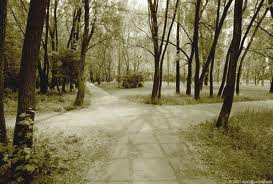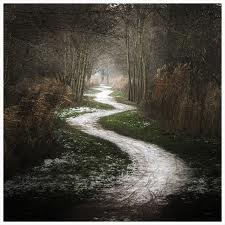
Awareness Series Epilogue
Every Life Has A Purpose
Over the last three essays (3 Part Awareness Series), I examined why developing our non-rational or psychic awareness is a challenge and how we can start to change that. I also looked at the various levels of mastery of these same awareness's and the skills or knowledge that comes with each of the four levels I described. The purpose was to make people aware of what they are and what they mean; it was not to suggest that people should strive to follow that particular path of knowledge.
There are few who have this full path of knowledge as theirs for any given lifetime. The vast majority of us are not born to become neither spiritual Adepts nor Masters and while it is an admirable goal, it is the path for only a very small number of people.
I say this not simply because it is a very challenging path, for it is, it is because we are all learning different lessons each as important as those learned on the path of enlightenment. This is because the breadth of experience required to become free of the cycle of incarnation is immense. In addition, becoming a Master within a given lifetime is not a requirement to be free of the cycle of incarnation, indeed most will not become a Master in any of their lifetimes. Therefore, becoming a Master is not more worthy or important than being a bricklayer, an engineer, a cab driver, domestic help or a person struggling on the streets. These are valuations made by the ego based “I” and the only meaning they have is what we give them, no more, no less.

We live many lifetimes and each of them has a purpose determined by their higher self. By saying this, I do not mean that our higher self makes a decision about what it will learn, though it could, in virtually all cases it allows the Law of Action and Reaction or Karma to do so rather than choose one consciously. I must add the caveat that while few people ever become Masters, anyone can be at various levels of skill and awareness within a lifetime.
In the essay “Our Evolution”, I wrote about what we are learning and how it occurs in a general sense. I mentioned how, in each lifetime, we have a set of capabilities and are born into a particular circumstance, circumstances that lead us to the lives we have. The intent of that essay was to try to show how each life we live is important in and of itself so that we experience what our higher self "needs" to for its evolution. We should not look at others lives with envy or prefer we had a different life though with the hardships that can come upon us this is understandable.
"The experiences that people have are exactly what they need to bring "stasis" or balance to their beaker. Stasis is not generally achieved in one lifetime because the complexity of our consciousness results in so many action-reaction sets that few are ever balanced out in one life. If you consider many lifetimes of being different people, you will realize just how complex our action reaction sets are. Aspects of these are brought into a lifetime; this allows us to work on particular influences within our beaker..." (1)
Every life has a purpose, not one we are necessarily consciously aware of, but one which guides our experiences none the less. We can only get to places our experiences enable us to. Even the thoughts and beliefs we come to hold arise out of the experiences and the circumstances of our birth establishes these. In each lifetime, these circumstances are the set of parameters we have to work with and they set us on a path.
We tend to live our lives in ignorance of our path and that is not a bad thing. As we live and experience each moment it may so happen that we have the urge to change so it is our experiences lead us to change, they are not accidental. It may be hard to accept that even the "bad" things that happen to us happen for a reason, but that does not change this fact. We attract what we need even when what we attract is not something we like or want.
We should leave behind the notion that experiences are as good or bad, for if a bad experience gets us to change so that we do not repeat it was the experience not a good one? We looked at this in the essay on “A Consideration of Opposites” (2). It all boils down to choices and consequences, hence, when people ask me what their path is or how to find it I ask them "what is your life telling you?"
We can discover what our lives are telling us by developing our ability to listen to our lives and then by doing just that... listening. I touched on this in “Ripples In My Pond” where I stated:
"The ripples are the result of imbalances I have created for myself. If one imagines the flow of the Cosmos, and all of its inherent properties as the flowing of still waters then a ripple is created when there is something that disturbs the flow of those waters, say a pebble in my pond. The ripple itself is not an issue, though we make big fusses about what we perceive and what we see as its impact in our lives....When those waters flow through me I move with them manifesting as I go, I continue to be in harmony with them unless what I manifest is not in alignment, and pebble is born and a ripple created. The ripples are the key to finding the "rocks" in the pond of my mind that deflect and personalize the still flowing waters." (3)
One does not need to go on a spiritual quest to solve the riddles in their lives. The answer to everything is not necessarily to know the unknowable, to ponder the deeper mysteries of life, to surrender oneself to the Cosmos or God or to give up material possessions to live the life of a monk. To solve the riddles of our life we must learn to listen to it. It matters not whether you are seeking your path, wanting to have better or more positive experiences, are tired of your current life or simply want to find more balance.
The place to start is to learn listen to our lives here and now, to notice what we have been ignoring for so many reasons. By listen I mean paying attention to how we act, react and to how we think and feel as we experience. This helps us to see our blinders, not all at once, but bit by bit, layer by layer.
Of course, listening in and of itself is not enough, but it is where we start. There is nothing wrong with being whoever you are right now, nor is there any need to seek a better life even though one might feel they must. One is either is feeling good about their lives or they are not. The true challenge is what to do when one is not feeling good about their lives.
Certainly, we can simply go about our lives as we see fit and do not have to evaluate anything if we choose not to; we can simply live with the vicissitude. Living this way does not make us bad people, nor does it mean we have wasted our life, though some would argue this point. It is a choice like any other. The only question one could or perhaps should have is “am I okay with what I have chosen?”

The answer only matters to the individual. Others might try to push you to change, but that is their issue. So long as you can live with the consequences of your choice, what you believe others think about it only matter if you allow it to. If you are questioning it then maybe it is time to try something different. I cannot tell you how to do this in a stepwise process for no such recipe exists. What works for one will not necessarily work for another. What you can take forward with you are ways of finding out for yourself. I believe that “best way” is indeed paying attention to your life, examine your thoughts and feelings and do not be content with what you find.
When you dig beneath the surface, you will find emotions that tend to block and hinder your progress. These are the result of how you integrated certain experiences. This is where the hurt, the anger or the pain you feel, even the thoughts and beliefs that restrict you, come from. By learning to listen better, by following the ripples in the pond that is our mind, you can go back to the memories of the events and in a very real way redo them by changing your reaction to the event in the now.
Remember that the past is also now, while our reactions may have chronologically occurred in the past, the past is not something left behind, it is with us now. When we are changing our reactions to our experiences, we are actually reintegrating them. This reintegration includes our past reactions; however, they are no longer separate, we have incorporated them into our new thoughts about it. Given that the past is now, when we do this we change now. Doing so also affects other memories, thoughts and so forth that are associated with how we originally integrated the experience. How this affects us depends on the thoughts and emotions we have and we can go through the same process for these.
It is worth noting that this idea is the foundation of neuro-linguistic programming (NLP) though the success rate was not high and there are risks associated with NLP, due to reprogramming method, ones that can lead to more harm than good. Self-reprogramming is different in that we are accessing our own individual memories. The challenge lies in several factors:
- Being clear and objective
- Attaining sufficient sensitivity to use emotions and thoughts to track back through our memories to the trigger event
- Transparency to allow the memory without interference from the rational mind
- The level of honesty to be sure they are able to know that you have isolated the “true” memory of the experience.
We all have these skills in some measure, though the process requires that we refine them. Still, one can use this basic method without acquiring great skill at the various factors, though in this case one cannot be certain they have resolved the underlying issue. The level of skill required grows the further back in time one goes and the strength of the emotions or thought forms one is dealing with.
It is relatively easy to redo a new though we just had or one that is recent, I would dare say that most have done this in order to deal with something they are reacting to in the moment or something recent through reassessing their reactions to some experience. Doing so for thoughts based on older notions and beliefs, typically those we have had more than a couple of weeks ago, is where it gets harder. Still, we can develop these skills to the point where we can go back and in a sense, change the past. Stating the above reminds me of that old saying – “no pain no gain”, and that it is not true unless one believes it to be. We can gain without the slightest pain if we go about it the proper way.
All that I have said here is to state that we are all as we should be. This does not mean that we cannot strive to change and grow, for we should, though we will only do so when we are ready to. Further, it is a personal choice and not one that others can make for us. If one’s experiences have them re-evaluating this is good, yet it is not a requirement. Even those we perceive as bad people are doing as we are just in a different way. The key is to begin to get to know thyself, to love thyself even with what you may perceive as flaws. We should not be looking upon others and judge them based on our perspective, we should accept them as they are. If they are potentially harmful to us, we should be cautious, but still not judge them for in doing so we are showing our own ignorance and adding to our growth burdens. We should apply this same logic to our view of ourselves.
Unconditional love is and has always been the key. This love is not that which originates in the mind or the “I”, this love is universal and eternal. The more time you spend being concerned about what others may or may not be doing the more you are locked into “I” which leads you further away from your true self. This is the point of “judge not lest ye be judged” for by judging another you are judging yourself.
As you go forward, remember we are all aspects of God. Whatever you are doing in right now in your life is what you need to be doing. Change is inevitable, there is no need to be concerned with it, though the “I” is generally reluctant to let go of that which it has come to hold dear. You path lies in and through this. If it is your path to become a Master then so be it, but do not hold onto the notion that is the greatest goal one can have and set themselves upon it. Just be all you are now, with what have to work with. Do not judge yourself as unworthy if you can, for this is not the case.
Whether you see the need for change and do, whether you see the need to change and choose not to or whether you do not notice the need to change at all, is irrelevant. All that matters is that you live your life and let your life speak to you. If you do learn to listen to it, you will be on your path consciously rather than letting life simply happen. Any pain you have is what you brought into existence, to let it go means to understand why you took it on in the first place. Either way it is your path, embrace it and explore it if you can, you will not regret it.

© 2011 Allan Beveridge
References:
